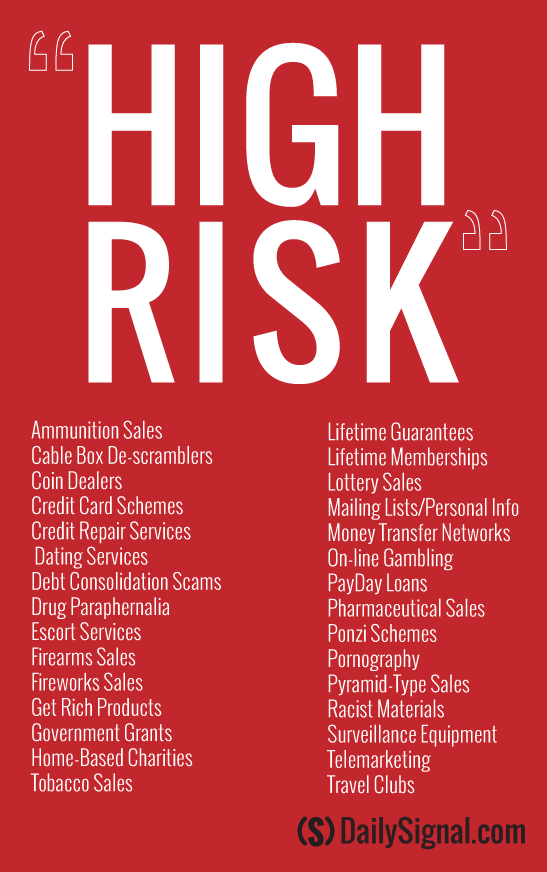Operation Choke Point
Operation Choke Point:
November 11, 2018

I was skimming the facebook page of a soon-to-be-podcast guest, Kingsley Edwards, and came across a disturbing article describing Operation Choke Point. The name of the Operation struck me as odd and after a few lines of reading, I knew it was the problem facing many of us in the crypto-industry; access to banking has been choked off. I have felt this pain first hand; in August the Bank of Tampa declared my law firm’s account to be a Money Services Business (“MSB”). Considering how closely I work with the FinCEN MSB process, I know without a doubt that the Bank of Tampa made an erroneous classification, but there was no use arguing with them. We found Chase to be more accommodating so far.
Operation Choke Point was launched by the Dept. of Justice in 2013, “to ‘choke out’ companies the Administration considers a ‘high risk’ or otherwise objectionable, despite the fact that they are legal businesses” by “deny[ing] these merchants access to the banking and payments networks that every business needs to survive.” Essentially, it pressures banks to “choke off” access to bank accounts for industries thought to be a high risk for fraud.
The full list consisted of the following merchant categories: Ammunition Sales, Cable Box De-scramblers, Coin Dealers, Credit Card Schemes, Credit Repair Services, Dating Services, Debt Consolidation Scams, Drug Paraphernalia, Escort Services, Firearms Sales, Fireworks Sales, Get Rich Products, Government Grants, Home-Based Charities, Life-Time Guarantees, Life-Time Memberships, Lottery Sales, Mailing Lists/Personal Info, Money Transfer Networks, On-line Gambling, PayDay Loans, Pharmaceutical Sales, Ponzi Schemes, Pornography, Pyramid-Type Sales, Racist Materials, Surveillance Equipment, Telemarketing, Tobacco Sales, and Travel Clubs.
Former Federal Deposit Insurance Corp. Chairman William Isaac went as far as to call it “one of the most dangerous programs I have experienced in my 45 years of service as a bank regulator, bank attorney and consultant, and bank board member.”
The term “reputational risk” is often used in the banking industry to describe businesses that are considered as a high risk for fraud. With this Operation Choke Point program, federal regulators can effectively squeeze off banking services to legal companies just by suggesting the overall industry may have a reputational risk.
As soon as an official from the Federal Deposit Insurance Corporation (“FDIC”) would inform the banks that the government considered certain types of their customers “high risk,” the sheer implication is enough to induce the banks to close accounts. As the FDIC is well aware, the idea of additional audits, investigations, and other oversight from their regulator is quite unattractive, to say the least.
I have no trouble believing that “Virtual Currency” is also on the “reputational risk” list, however there have been no public updates to the list since 2012. In the FDIC’s 2017 annual report, they stated that they formed a Financial Technology Working Group to monitor the challenges.
At present, the United States does not have a direct and comprehensive program to conduct oversight of the virtual currency markets. However, some government regulators and agencies have issued guidance to address concerns about virtual currencies, including the Financial Crimes Enforcement Network (“FinCEN”), Internal Revenue Service, Commodity Futures Trading Commission (CFTC), and Securities and Exchange Commission (SEC). The FDIC has analyzed the potential impact that virtual currencies pose to financial institutions and formed a Financial Technology Working Group to monitor virtual currencies and other financial technology innovations. Among the challenges identified by the FDIC are the potential for illicit use and connection to criminal activity, legal and supervisory challenges, and integration with and risk to financial institutions. The FDIC should continue to monitor issues surrounding virtual currencies, to ensure that examiners and institutions are aware of the threats posed by these evolving technologies and markets.
There are some banks that have gone out of their way to accept Bitcoin, and others who have not, banks.com has assembled a nice list.
Banks that accept bitcoin:

Banks that explicitly limit or ban bitcoin:

Sources:
https://www.cfsaa.com/files/files/Statement%20of%20Undisputed%20Material%20Facts%20Operation%20Choke%20Point.pdf
FinCEN’s Advisory to Financial Institutions on Cyber-Events and Cyber-Enabled Crime (FIN-2016-A005 October 25, 2016); CFTC Backgrounder on Oversight of and Approach to Virtual Currency Futures Markets (January 4, 2018); SEC Chairman Jay Clayton Statement on Cryptocurrencies and Initial Coin Offerings (December 11, 2017).
https://www.fdic.gov/about/strategic/report/2017annualreport/ar17appendix.pdf
https://www.banks.com/articles/cryptocurrency/banks-that-accept-bitcoin/
Congratulations @sashahodler! You received a personal award!
You can view your badges on your Steem Board and compare to others on the Steem Ranking
Vote for @Steemitboard as a witness to get one more award and increased upvotes!